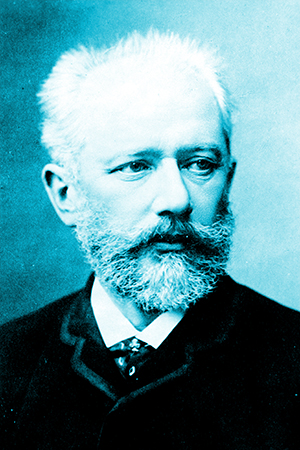By Elisa Citterio, Music Director

When musicians first began the journey of rediscovering original instruments some 70 years ago, there was considerable skepticism amongst colleagues and listeners. The sound and approach were very different from those of a modern orchestra. But without these musical adventurers, we wouldn’t have discovered thousands of amazing baroque scores: many would have been left behind if 20th-century musicians hadn’t embarked on the path of understanding as to how they might have been played. And, since there are no recordings of music from the 1600s and 1700s, we rely on these scores and on diligent research to perform Bach, Vivaldi, Haydn, Mozart, Mendelssohn, and now also Tchaikovsky, in a way that respects the composition and the sonorities of the instruments for which these composers wrote.
Musicians who arrive at romantic repertoire having undertaken a thorough study of music through the ages, beginning with Monteverdi and earlier, and having examined historical manuscripts, the evolution and transformation of musical instruments, repertoire, and any available information sourced through letters and historical documents, can approach a romantic score with a deep understanding and appreciation for the composer’s notes on the page.
Our utmost mission is to bestow emotion, to touch people’s hearts. But we must also share with new generations our ongoing and tireless study of new sources and information. Before we perform Tchaikovsky, we will be holding a workshop for the orchestra with a specialist who will help us understand the technical details required to perform this score (use of vibrato, portamento, rubato technique, the reading of different types of accents, etc.). In fact, I chose the 30-minute Serenade for Strings because it offers an opportunity for Tafelmusik’s string players to work together on these different techniques.
Coming to this music from the perspective of our experience of baroque and classical music, our performances of Tchaikovsky are bound to sound rather different than what you’ve heard before. Our Tchaikovsky, after all, will bear faint traces of Monteverdi — and we hope will be true to the essence of this eloquent and impassioned composer.
Elisa Citterio joined Tafelmusik as Music Director in 2017. LEARN MORE
Join us for Tafelmusik meets Tchaikovsky from September 19–22, 2019 at Koerner Hall. BUY TICKETS
